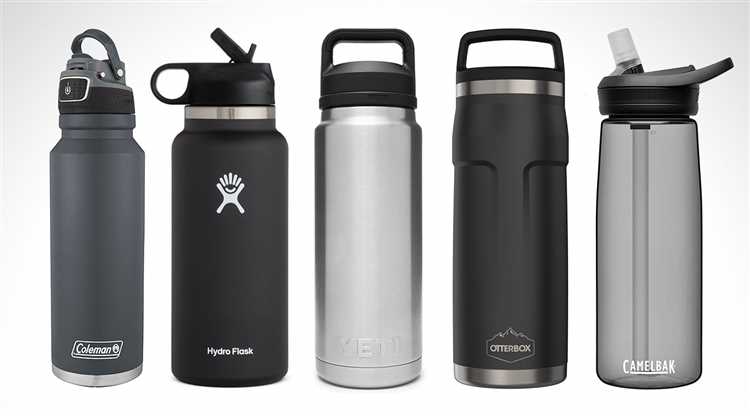
Staying hydrated is crucial for maintaining good health, and the water bottle you choose can have a significant impact on your well-being. With so many options available on the market, it can be overwhelming to determine which water bottle is best for you.
In this comprehensive guide, we will discuss the key factors to consider when selecting a water bottle that promotes your health and well-being. From the materials used to make the water bottle to the design and features it offers, we will provide you with all the information you need to make an informed decision.
One of the primary considerations when choosing a water bottle is the material it is made of. Common options include plastic, glass, stainless steel, and aluminum. Each material has its own advantages and disadvantages, and understanding these differences can help you select a water bottle that aligns with your health goals.
We will also dive into the importance of choosing a water bottle that is free from harmful chemicals such as BPA (bisphenol A) and phthalates. These chemicals can leach into your water and have been linked to various health issues. By opting for a BPA-free and phthalate-free water bottle, you can ensure that you are consuming clean and safe water.
- The Importance of Water Bottle Selection
- Factors to Consider When Choosing a Water Bottle
- 1. Material
- 2. Size and Capacity
- Plastic Water Bottles vs. Stainless Steel Water Bottles
- Plastic Water Bottles
- Stainless Steel Water Bottles
- Reusable Water Bottles vs. Single-Use Plastic Bottles
- Additional Features to Look for in a Water Bottle
- 1. Insulation
- 2. Leak-proof Design
- 3. BPA-Free Materials
- 4. Easy-to-Clean
- 5. Size and Capacity
- 6. Drinking Spout
- Tips for Proper Water Bottle Cleaning and Maintenance
- 1. Wash your water bottle daily
- 2. Use a bottle brush
- 3. Avoid using harsh chemicals
- 4. Remove odors with baking soda
- 5. Air dry your water bottle
- Q&A:
- What are the health risks of using plastic water bottles?
- What are the benefits of using stainless steel water bottles?
- Are glass water bottles a safe option?
- What should I consider when choosing a water bottle for health?
- Is it better to use reusable water bottles instead of disposable plastic bottles?
The Importance of Water Bottle Selection
Choosing the right water bottle is more important than you may think. Not all water bottles are created equal, and the one you choose can have a significant impact on your health.
Firstly, the material of the water bottle is crucial. Plastic bottles, for example, can contain harmful chemicals like BPA that can leach into the water you drink. These chemicals have been linked to various health issues, including hormonal imbalances and an increased risk of certain diseases.
It’s recommended to opt for water bottles made of stainless steel or glass, as these materials do not leach any harmful substances into the water. These bottles are also more durable and can be reused for a longer period.
Secondly, the size and design of the water bottle matter. If you’re someone who enjoys outdoor activities or spends a lot of time on the go, a larger water bottle with a secure lid is essential. This will ensure that you have enough water to stay hydrated throughout the day, without any leaks or spills.
Additionally, the shape of the water bottle can affect your drinking experience. Some bottles are designed with a wide mouth, making it easier to clean and fill with ice or fruit slices for infused water. On the other hand, narrow-mouthed bottles are more convenient for sipping and can prevent spills.
Lastly, consider the ease of cleaning and maintenance when choosing a water bottle. Look for bottles that are dishwasher safe or easy to clean by hand. Water bottles with removable parts, like straws or filters, may require extra attention to ensure they are thoroughly cleaned.
In conclusion, selecting the right water bottle is essential for your health and hydration. Consider the material, size, design, and ease of cleaning when making your decision. By choosing a high-quality water bottle, you can ensure that you are drinking clean and safe water while reducing your environmental impact.
Factors to Consider When Choosing a Water Bottle
When it comes to choosing a water bottle, there are several factors that you should consider. These factors will help you find the best water bottle for your health and lifestyle.
1. Material
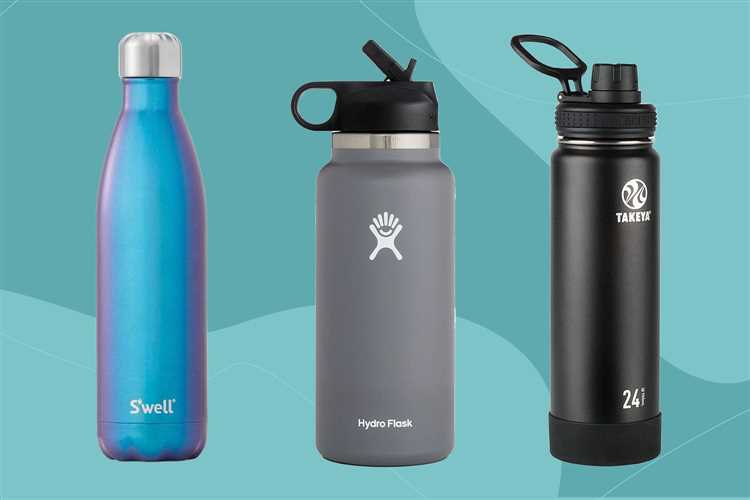
The material of the water bottle is an important factor to consider. Some common materials include plastic, stainless steel, glass, and silicone. Each material has its advantages and disadvantages. Plastic bottles are lightweight and affordable, but they can leach chemicals into the water. Stainless steel bottles are durable and keep beverages hot or cold for long periods, but they can be heavy. Glass bottles are environmentally friendly and do not leach chemicals, but they can break more easily. Silicone bottles are collapsible and easy to carry, but they may retain odors.
2. Size and Capacity
The size and capacity of the water bottle should also be taken into consideration. If you are always on the go, a smaller bottle that fits in your bag or cup holder may be more practical. However, if you need a water bottle for longer trips or intense workouts, a larger bottle with a higher capacity may be more suitable. It’s important to choose a size and capacity that fits your needs and lifestyle.
In addition to material, size, and capacity, factors such as ease of cleaning, lid type, and additional features like built-in filters or measurement markers should also be considered when choosing a water bottle. By carefully evaluating these factors, you can find the perfect water bottle that meets your health needs and fits seamlessly into your daily routine. Remember to always prioritize your health and choose a water bottle that encourages you to stay hydrated throughout the day!
Plastic Water Bottles vs. Stainless Steel Water Bottles
When it comes to choosing a water bottle for health, one of the most important decisions you’ll have to make is whether to go with a plastic or stainless steel option. Both types of bottles have their pros and cons, so it’s essential to consider your needs and preferences before making a final decision.
Plastic Water Bottles
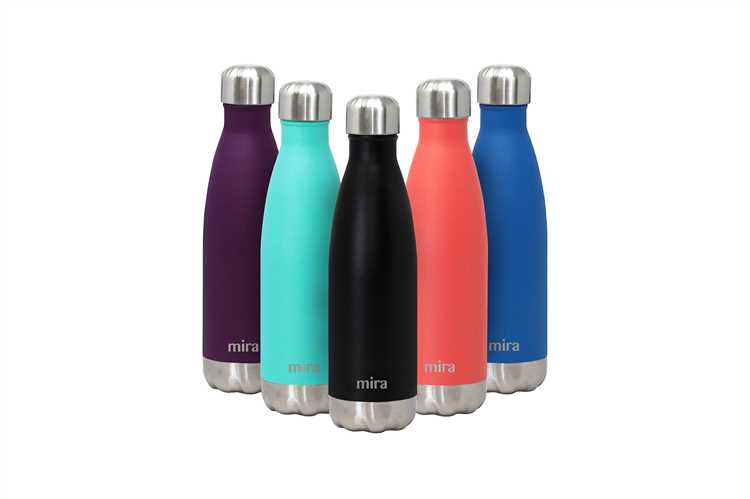
Plastic water bottles are lightweight, affordable, and widely available, making them a popular choice among consumers. They are convenient to carry around and are often designed to fit in cup holders and backpack pockets. However, plastic bottles can have some downsides in terms of health and environmental impact.
Concerns have been raised about the potential health risks associated with plastic bottles, particularly those made from low-quality materials or containing certain chemicals, such as BPA (bisphenol A). These chemicals can leach into the water, especially when the bottle is exposed to heat or worn out over time. While many plastic bottles are now labeled as “BPA-free,” there are still other chemicals that could pose concerns.
In addition to health concerns, plastic water bottles also contribute to the growing problem of plastic pollution. Many plastic bottles end up in landfills or oceans, taking hundreds of years to decompose and causing harm to wildlife and ecosystems. Choosing a reusable plastic bottle over disposable ones can help reduce your environmental impact.
Stainless Steel Water Bottles
Stainless steel water bottles are a popular alternative to plastic bottles, known for their durability and sustainability. They are made of food-grade stainless steel, which is non-reactive and does not leach chemicals into the water. This makes them a safe option for daily use.
Stainless steel bottles are also known for their excellent insulation properties, keeping your water cold for longer periods. They are typically more durable and resistant to damage compared to plastic bottles, making them a good choice for outdoor activities and sports.
Although stainless steel bottles tend to be pricier than their plastic counterparts, they offer a long-term cost-effective solution. With proper care, they can last for years, eliminating the need for frequently buying disposable bottles.
In terms of environmental impact, stainless steel bottles are a more sustainable choice as they are reusable and recyclable. They help reduce the demand for single-use plastic bottles and minimize the amount of plastic waste that ends up in landfills or oceans.
In conclusion, both plastic and stainless steel water bottles have their advantages and disadvantages. If you’re looking for an affordable and lightweight option, plastic bottles may be suitable. However, if you prioritize longevity, health, and sustainability, stainless steel bottles are an excellent choice. Consider your needs and make an informed decision that aligns with your values and overall health goals.
Reusable Water Bottles vs. Single-Use Plastic Bottles
When it comes to choosing a water bottle, many people find themselves at a crossroads: should they opt for a reusable water bottle or stick with single-use plastic bottles? This decision has become increasingly important as awareness of the environmental impact of single-use plastic has grown.
Reusable water bottles offer several advantages over their single-use counterparts. Firstly, they are more sustainable. By using a reusable bottle, you can significantly reduce your contribution to the plastic waste problem. It’s estimated that over 8 million tons of plastic end up in our oceans every year, and small changes like using a reusable water bottle can help combat this issue.
Another advantage of reusable water bottles is that they are often made from safe materials. Many single-use plastic bottles can contain harmful chemicals like BPA, which can leach into the water and pose health risks. In contrast, reusable bottles are typically made from materials like stainless steel or BPA-free plastic, ensuring that your water remains clean and toxin-free.
Using a reusable water bottle can also help save money in the long run. While the initial cost of a reusable bottle may be higher than that of a single-use bottle, the investment pays off over time. Instead of constantly buying new bottles, you can simply refill your reusable bottle whenever needed. This not only saves money, but it’s also a small step towards reducing your carbon footprint.
However, it’s important to note that there are some situations where single-use plastic bottles may be more convenient. For example, when traveling or participating in certain outdoor activities, it may be difficult to carry around a reusable bottle. In these cases, it’s still important to dispose of the single-use bottle properly to minimize environmental impact.
| Reusable Water Bottles | Single-Use Plastic Bottles |
|---|---|
| More sustainable | Contribute to plastic waste |
| Often made from safe materials | May contain harmful chemicals like BPA |
| Can save money in the long run | Constantly need to be replaced |
| May be less convenient in some situations | May be more convenient in certain situations |
In conclusion, choosing between a reusable water bottle and a single-use plastic bottle is a personal decision that involves considering the environmental impact, health concerns, and convenience. By opting for a reusable water bottle, you can make a positive impact on both your health and the environment.
Additional Features to Look for in a Water Bottle
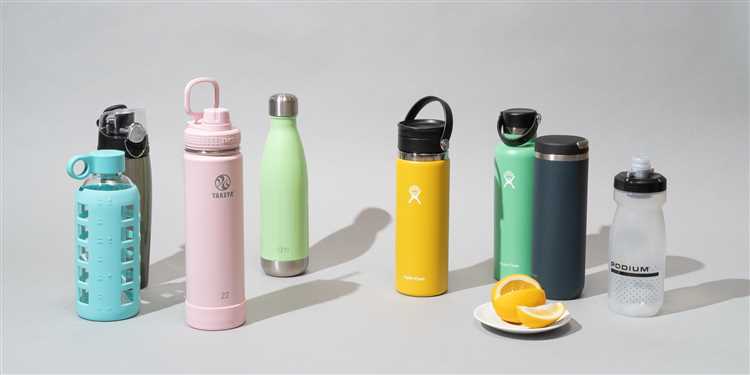
When it comes to choosing a water bottle for your health needs, there are several additional features that you should consider. These features can enhance your overall experience and make it easier for you to stay hydrated throughout the day.
1. Insulation
Insulated water bottles are designed to keep your beverages at the desired temperature for a longer period of time. Whether you prefer your water chilled or your tea hot, an insulated water bottle can maintain the temperature for hours. This can be especially beneficial during outdoor activities or for those who are always on the go.
2. Leak-proof Design
A leak-proof water bottle is essential, especially if you plan to carry it in your bag or backpack. Look for a bottle with a secure cap or lid that will prevent any accidental leaks or spills. This feature will help you avoid messes and ensure that your water stays safely contained.
3. BPA-Free Materials
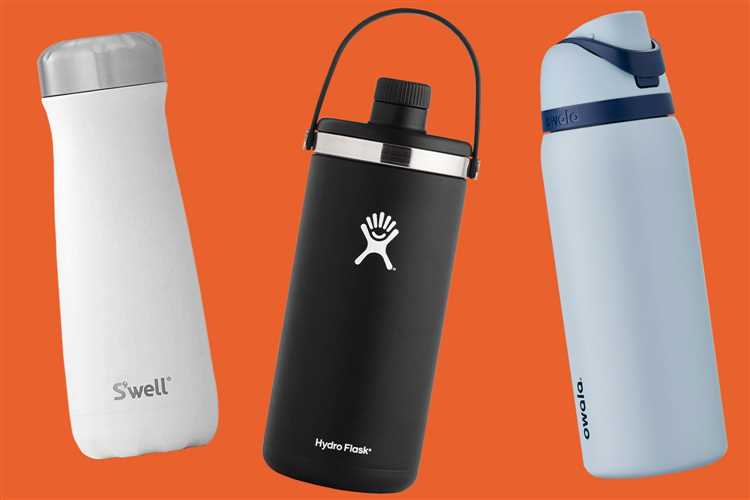
BPA, or bisphenol A, is an industrial chemical commonly used in the production of plastics. It has been linked to various health issues, so it’s important to choose a water bottle that is made from BPA-free materials. This will ensure that no harmful chemicals can leach into your water, keeping it safe and healthy for consumption.
Remember: Always check the product description or label to ensure that the water bottle you choose is BPA-free.
4. Easy-to-Clean
Keeping your water bottle clean is crucial for maintaining good health. Look for a bottle that is easy to disassemble and clean, preferably dishwasher safe. This will prevent any buildup of bacteria or mold, ensuring that your water stays fresh and free from contaminants.
5. Size and Capacity
Consider your daily water intake when selecting the size and capacity of your water bottle. A larger capacity bottle may be ideal for those who need to drink more water throughout the day, while a smaller, more compact bottle may be easier to carry around. Choose a size that suits your needs while still being convenient for your lifestyle.
6. Drinking Spout
The type of drinking spout on a water bottle can also make a difference in your hydration experience. Some people prefer a wide-mouth opening for easy drinking and refilling, while others like a straw or a flip-top lid. Consider your personal preference and choose a bottle with a drinking spout that suits your needs.
By considering these additional features, you can choose a water bottle that meets your health and lifestyle requirements. Take the time to research and compare different options before making your final decision.
Tips for Proper Water Bottle Cleaning and Maintenance
Maintaining the cleanliness of your water bottle is essential for ensuring your health and safety. Here are some tips to help you properly clean and maintain your water bottle:
1. Wash your water bottle daily
It’s important to wash your water bottle every day, especially if you use it regularly. Use warm water and dish soap to thoroughly clean the inside and outside of the bottle. Pay close attention to the cap and any other areas where dirt and bacteria may accumulate.
2. Use a bottle brush
A bottle brush is an effective tool for cleaning the inside of your water bottle. The bristles can reach into narrow and hard-to-reach areas, removing any residue or buildup. Make sure to rinse the bottle brush thoroughly after each use to prevent the spread of bacteria.
3. Avoid using harsh chemicals
While it’s important to keep your water bottle clean, avoid using harsh chemicals such as bleach or ammonia. These chemicals can leave behind residues and may be harmful if ingested. Stick to mild dish soap or vinegar for a safe and effective cleaning solution.
4. Remove odors with baking soda
If your water bottle has developed an unpleasant odor, try using baking soda to get rid of it. Fill the bottle with warm water and add a teaspoon of baking soda. Let it sit overnight, then rinse thoroughly. The baking soda will help eliminate any lingering odors.
5. Air dry your water bottle
After washing your water bottle, make sure to air dry it completely before storing it. Leaving the bottle wet can promote the growth of bacteria and mold. Prop the bottle upside down in a well-ventilated area to allow the water to drain and the bottle to dry completely.
By following these tips and regularly cleaning and maintaining your water bottle, you can ensure that you are drinking from a safe and healthy container.
Q&A:
What are the health risks of using plastic water bottles?
Plastic water bottles can leach harmful chemicals like BPA into the water, which can lead to various health problems including hormonal imbalances, reproductive issues, and an increased risk of certain types of cancer.
What are the benefits of using stainless steel water bottles?
Stainless steel water bottles are a great option for health-conscious individuals as they do not leach any harmful chemicals into the water and are highly durable, resistant to corrosion, and easy to clean. They also keep drinks at a desired temperature for longer periods of time.
Are glass water bottles a safe option?
Glass water bottles are considered one of the safest options for storing water as they do not leach any chemicals into the water and are non-porous, which means they won’t retain any flavors or odors. However, they are fragile and should be handled with care to avoid breaking.
What should I consider when choosing a water bottle for health?
When choosing a water bottle for health, it is important to consider the material it is made of, how easy it is to clean, its durability, and whether it is free from any harmful chemicals like BPA. It is also important to ensure that the water bottle is leak-proof and can keep drinks at a desired temperature if needed.
Is it better to use reusable water bottles instead of disposable plastic bottles?
Yes, using reusable water bottles is better for both your health and the environment. Disposable plastic bottles can leach harmful chemicals into the water and contribute to plastic pollution, whereas reusable water bottles are generally made from safer materials and can be used over and over again, helping to reduce waste.